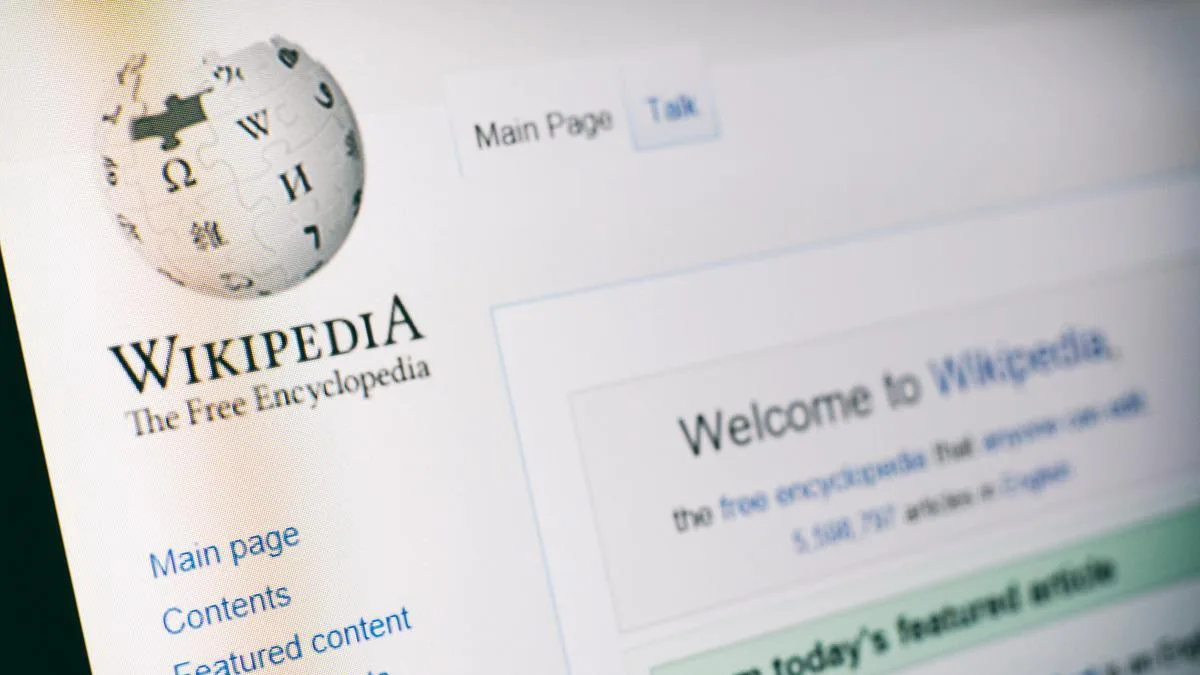Wikipedia has adopted new rules to combat the flood of AI-generated articles inundating the online encyclopedia. Under the new policy, administrators are authorized to quickly delete AI-generated articles if they meet certain criteria.
Because Wikipedia is maintained by an international community of volunteers and editors, its participants spend a lot of time on discussions and debates—both about specific edits to articles and about the policies that govern such edits in general. Deleting entire articles is standard practice on Wikipedia; however, the deletion process includes a week-long discussion phase during which the community tries to reach a consensus on whether a particular piece of content should be removed.
For common violations that clearly contradict the encyclopedia’s rules, there is a process of speedy deletion: one person tags the article for deletion, an administrator checks whether it meets the criteria, and deletes it, bypassing the discussion stage.
This kind of speedy deletion, for example, can be applied to articles composed entirely of nonsensical text, as well as to promotional content that lacks encyclopedic value. However, if someone simply believes that an article is “probably not of interest,” that is a subjective assessment, and deletion requires a full discussion.
The problem is that, currently, most of the articles that editors mark as AI-generated fall into the second category, because the editors cannot say with confidence that they were written by AI.
As Ilyas Lebleu (Ильяс Леблё), one of the founders of the WikiProject AI Cleanup project and the author of key wording in the new policy, explains, this is precisely why previous attempts to regulate AI content on Wikipedia have been fraught with difficulties.
“While it’s easy to spot signs that a text may have been generated by AI (choice of phrasing, dashes, lists with bold headings, and so on), that’s rarely unambiguous. We don’t want to mistakenly delete material just because it looks like it was written by AI,” Leblé told 404 Media. “Overall, the growth of readily available AI content is already being called an ‘existential threat’ to Wikipedia. Our processes are built around lengthy discussions and consensus-building, and if someone can quickly generate mountains of junk content, we don’t have a deletion procedure that’s equally fast. And that’s a serious problem. Of course, AI content isn’t always bad, and people are also quite good at creating bad content, just not at that scale. Our tools were built for a very different scale.”
The solution reached by the Wikipedia community is to allow speedy deletion of articles that are clearly AI-generated. However, for this to apply, the articles must meet certain criteria.
First criterion: the article contains phrases “addressed to the user.” These are formulations that betray AI-typical language, for example: “Here’s your article for Wikipedia” or “As a large language model…”. Such turns of phrase are a reliable marker that the text was generated by an LLM, and they have long been used to detect AI content in social media and academic papers.
Lebleu notes that encyclopedia editors often encounter this. And this means that the content was not just created by AI, but also indicates that the user didn’t even read the generated text.
“If someone misses such basic things, you can confidently assume they didn’t check anything at all and just copied ‘white noise’,” says Lebleu.
The second criterion: the article contains obviously false citations. This is another common problem with LLMs, namely that the AI may cite non-existent books, articles, or scientific papers, or include links that lead to irrelevant content. Wikipedia’s new policy gives an example: “if an article on computer science cites a work about beetle species — that’s grounds for deletion.”
According to Lebleu, expedited deletion is more of a temporary “patch” than a full-fledged solution. It will help eliminate the most obvious issues, but the problem of AI-generated content as a whole will persist. Such content still regularly appears in the encyclopedia and does not always fall under the criteria described above.
The expert also added that AI can be a useful tool and could even benefit Wikipedia in the future.
“The current situation is completely different, and speculation about how technology will develop only distracts from the real problems we’re already facing,” he says. “One of Wikipedia’s core principles is that there are no firm rules. Therefore, any decisions we make today can be revisited in a few years, as the technology advances further.”
LeBleu concludes that the new policy improves the situation, even if it doesn’t solve the problem entirely.
“The good news (in addition to the expedited deletion process itself) is that we now have a clear statement regarding LLM-generated articles. This used to be contentious. And while most of us oppose AI-written content, we couldn’t agree on exactly how to address it, and early attempts to develop a comprehensive policy failed. Now, building on prior success in dealing with AI-generated images, drafts, and talk page comments, we’ve set out more concrete guidelines that make it clear: unverified, AI-generated content runs counter to the spirit of Wikipedia.”
